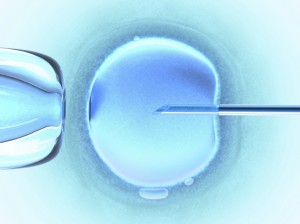I stumbled on this topic when I was at work today, it’s one of those (many, I suppose) issues that makes me angry purely because of the opposition to it.
Human Fertilisation and Embryology (Mitochondrial Donation) Regulations 2015 was a recent debate and vote in the House of Commons.
The set of disorders mitochondrial disease consists of, including deafness, blindness, neuropathic pain, seizures, dementia, heart muscle disease and cramping are clearly hugely severe and effect every aspect of life. Some cases of mitochondrial diseases are caused by mutations in the mitochondrial DNA, around 15%, this is the subject of the draft regulations. Mitochondrial donation allows mitochondria from a healthy donor egg to be transferred to the mother’s egg, which is then fertilised to produce a healthy embryo without the risk of having suffer mitochondrial disease.
Safety is a topic which is frequently brought up in relation to this debate and many others like it, though it merely acts a useful proxy for other more ethical and less sensible arguments. The safety of the techniques has been researched for over 35 years. The British Fertility Society and the Progress Educational Trust recently produced a report which emphasises that the safety of the techniques has been assessed in great detail by many expert scientific reviews, all of them finding the procedure to be safe. This is supported by several other factors, such as every precaution that is taken with any novel treatment (many of which, such as IVF, are regarded as normal, safe and commonplace) being taken with these techniques.
Arguments emerge also of concerns of a ‘slippery slope’ – that helping families and women to overcome this disease will for some unholy reason lead to some kind of drastic science-fiction style experiments being forced upon people and creating a race of grotesque left-wing mutants that want to actually consider progressive techniques as useful and needed. Mitochondrial donation is neither genetic modification nor genetic engineering. While those types of procedures may involve more risk, mitochondrial donation involves no direct intervention to the gene sequence. This is why concerns of a slippery slope are unfounded in considering mitochondrial donation.
Furthermore, licenses will be required and regulated to preform mitochondrial donation which is a measure which will ensure safety.

Concern for germline modification of embryos is another oft-touted excuse, however these concerns are unnecessary. The germline which will be effected is the mitochondrial germline. This will have only positive consequences for future generations, as the healthy mitochondrial donation will be passed along to future generations. In this respect, it is hoped that the techniques will allow for prevention of the disease. There are around 2, 500 women in the UK and 12, 000 in the U.S who could be passing the potentially lethal disease onto their children. This illustrates the need to tackle the debilitating disease.
Tagging the procedure with the rather cruel moniker “three parent IVF,” the opponents of the technique paint it as something twisted and warped to be feared. The only DNA that the child will inherit from the donor is mitochondrial DNA, only 0.1% of our DNA is mitochondrial, nor does it code any of the aspects of our DNA commonly associated with identity. To say that mitochondrial donation creates children with three parents would be inaccurate. This could be highlighted by considering the case of adopted children, where it would be unreasonable to classify parents as simply genetic relations.
Online, I have even seen the fact that the UK is leading the way in using and developing mitochondrial donation as some kind of criticism – emphasising the fact that even CHINA doesn’t use the methods (god forbid that Britain do something China wouldn’t allow!). I believe the fact that the UK is one of the first countries to perform these techniques to be a positive thing. Hopefully, other countries will be able to follow suit in considering mitochondrial donation.
Thankfully, the motion did pass so I am little after the fact of me to post this now – I just think I wanted to rant about the ultra-conservative viewpoints which consistently seem to get involved in every aspect of life. It does seem like opposition to these types of bills is based purely on overly-conservative knee-jerk reactions which have always put huge brakes onto progress, using ethics as an argument in itself and falling back on half-baked arguments which are often (but not always) based on dated religious beliefs. I’m just glad that the motion passed through Parliament – hopefully a sign that that kind of blind opposition to modernisation and moral progress is diminishing (no doubt optimistic, I know!).
